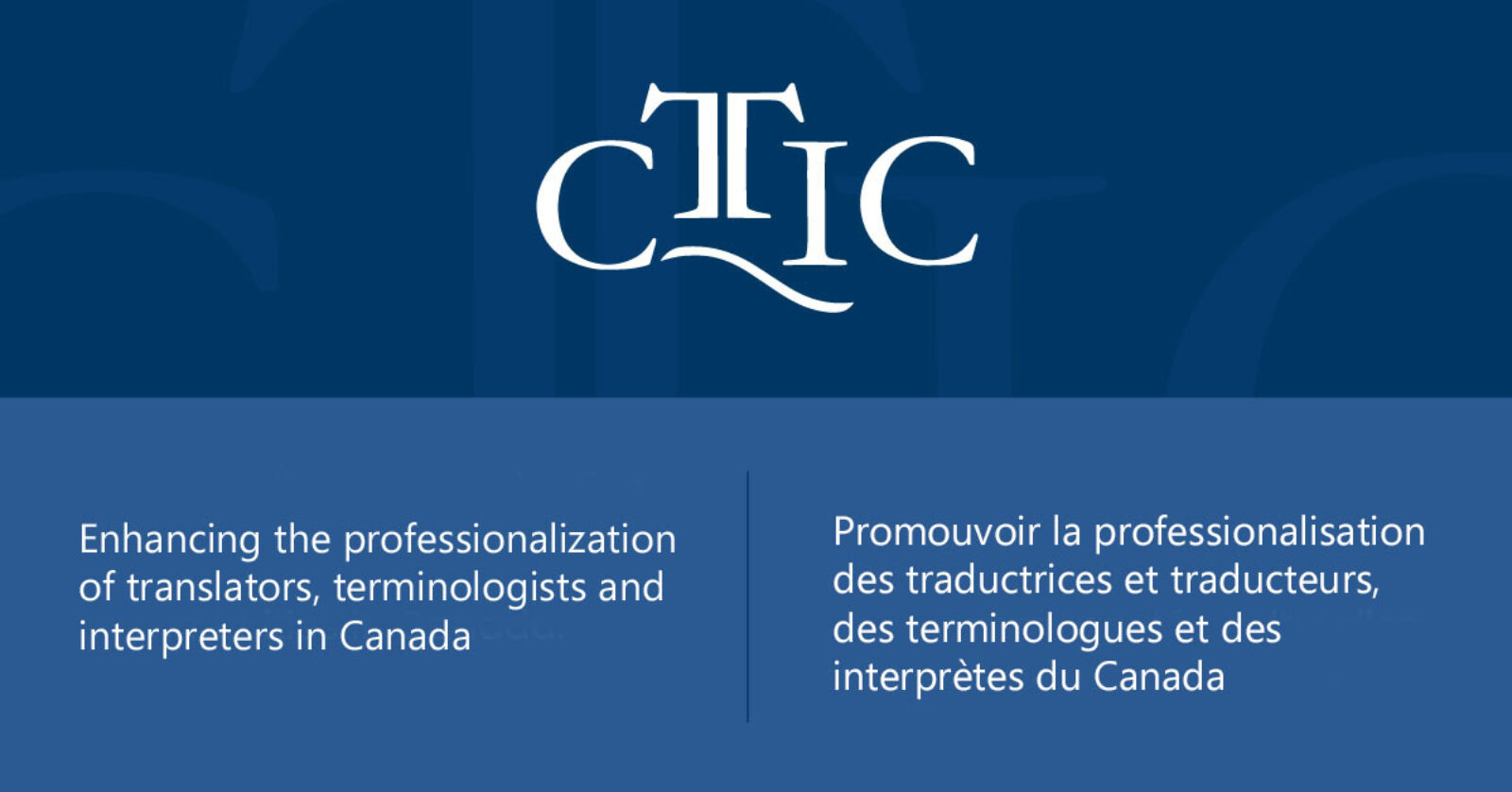The following is an interview conducted by Silvia Xalabardé, a CTTIC Member-at-Large (2021-2022), of certified Vietnamese-English court interpreter and CTTIC Member-at-Large, Trang Angie Nguyen. Trang has worked in this profession for 30 years and in the last decade has been a marker for the Attorney General of Ontario to certify court interpreters in that province. She is also on the Advisory Committee with the Court Services Branch of the B.C. Ministry of the Attorney General where she advocates for court interpreters, ensuring they have a voice and helping them to resolve any issues they encounter in the course of their work. For years now, she has been instrumental in advocating for better pay rates, cancellation policies and working conditions for Court Interpreters in B.C. The article was originally published in the STIBC Voice Newsletter of October 2021, page 6 to 8.

Trang, how did you get started as an interpreter?
I was born in Vietnam and came to Canada as a refugee “boat person” when I was nine. I often interpreted informally in the community, and by the time I graduated from high school, I was already doing some work for the Vancouver Police Department’s Homicide Section. I would go with them to crime scenes when they needed me. At that time, I wanted to study Criminology, and later I took the interpreting course at Langara College and Vancouver Community College (VCC). You had to take a test in order to get into the course, and the course itself lasted 18 months—12 months for court interpreting, including a practicum, and six months to interpret in health care settings.
Once I received an Accredited Court Interpreter certificate, I started working in court. At first it was going to be a side job, but it began to take more and more of my time. I was studying at Simon Fraser University, including distance learning courses, and I was also working full time. Back then there was a lot of work, and on weekdays I was busy from 7 a.m. to 11 p.m., and the next day, it started all over again. And at that time, in the nineties, there was also a lot of travel involved, so I was often on the road to different courthouses in B.C.
What kind of cases were you involved in?
There were all kinds of cases, including murder, manslaughter, prostitution rings, kidnappings, robbery, gang-violence, extortion, sexual assaults, drugs importation and many others. Sometimes they were high-profile trials, which can add to the anxiety and pressure. As an interpreter you have to be very accurate and careful. Every single morning of a trial you have to swear an oath that you will interpret accurately and faithfully to the best of your skills and abilities. So it’s serious.
It sounds like you were often under a lot of pressure. How did you deal with that?
The training helped a lot. There was a practicum, and we also went to watch trials. Once, Langara College and VCC partnered with the law faculty at U.B.C. (University of British Columbia) and we had a mock trial together with mock interpreting. It was a lot of fun. The training also taught us a lot about legal vocabulary and bilingual terminology, and court proceedings. There was a general law component, and then there were bilingual teachers. There were also exams for all these components and a required high mark average. The exams were challenging, but the interpreters who passed them were well prepared for their professional future.
What is your schedule like? Do you know ahead of time how much you will be working?
There is always some uncertainty about interpreters’ schedules. A trial can be expected to take many months and then, on the second day, the accused might decide to plead guilty and it is all over. So you have to be flexible. And in terms of how many hours a court interpreter works, it’s also very variable. Sometimes it is the whole day, sometimes half the day, sometimes you might be interpreting for a witness and he or she can be on and off the
stand for just a few minutes. And you also need to consider travel time, which can be significant, as you may have to travel anywhere in B.C.
Do you know what the court case is going to be about beforehand? Can you prepare?
I don’t know until I get there, unless it’s a long trial, in which case I might have some information, but mostly I find out what the case is about on that day. Some days I have a long list of many remand cases in different courtrooms, including things like adjournments, bail hearings, guilty pleas, probation order variations, family conferences and traffic violations.
Do you interpret everything that is going in the court?
If I’m interpreting for an accused who does not speak English, then I have to interpret everything for them. That includes anything anyone says, switching to simultaneous interpreting if necessary, which can be challenging. And again, it is very important, because they have a right to justice, and they need to understand the context of the trial and anything that might be relevant.
So do you just sit with them throughout the trial?
Yes, it’s often just the interpreter and the accused in the box, and sometimes it can feel unsafe because everyone else, the counsel and the judge, are sitting far away, and if the person has been accused of a violent crime and has an illness, it can actually be quite concerning to some. But for me, I just take it as part of my job. I was already going to crime scenes with the police when I was 18 years old, so I’m used to those kinds of situations.
What is the most challenging aspect of court interpreting?
Your personality is important. You have to be calm and patient at all times, and you have to be sensitive to the specific case. Sometimes, if a lawyer or judge is not getting the answer they want from the accused, they might attribute that to the interpreter not doing a good job and get them to ask the same question over and over, which can be stressful. Often the interpreter is doing nothing wrong, but rather it is the accused who is trying to deflect the question. You have to stay very calm in situations like that and just keep going. And you have to remember that the things you are dealing with are extremely important and that they can change people’s lives forever. For example, the accused might make a threat in the courtroom and the person could be charged with a new crime according to your interpretation, so as an interpreter you have to be very calm and very neutral. There can be no embellishment and no omissions. You have to interpret everything, even swear words, and
convey the tone if it is relevant. And you can’t allow your own feelings to come into it, and that’s hard to do. As human beings we are not machines, but we have to be very professional. Sometimes when there are funny stories in court, everyone will laugh except the interpreter, because we are so focused on doing our job.
So do most court interpreters have other jobs?
Well, Canada is a multicultural country and therefore there is quite a lot of work for court interpreters, but the exact amount really does depend on the language combination. I personally also work in ICBC (Insurance Corporation of British Columbia) discoveries, and as an immigration and health care interpreter. And, although they are different skills, some court interpreters are also translators, which is a good combination.
Have you ever been in a difficult situation you can tell us about?
Family cases can be especially difficult because there are a lot of emotions involved. I’ve had occasions where one of the parties was really worked up, and as I mentioned before, it is very important as an interpreter not to get swept up by emotion, or to take sides. Sometimes the parties might argue outside the court room, and if things are getting loud the sheriffs might get involved and ask the interpreter to help them understand what is going on. Family cases are tough because there is a lot at stake, not just marital assets, but also the custody of children. And then there are—of course—sexual assault cases, which are demanding and challenging for interpreters, because there can be a lot of nuance and victims rely on the interpreters to be their voice and faithfully communicate their experience to the court.
What would you recommend for people who want to get started in the profession?
Right now, unfortunately, there are no accredited and extended court interpreting courses in B.C. but one thing you can do is go and watch court cases where interpretation is required. It is public, so anyone can attend. You can also get in touch with experienced interpreters and shadow them at trials that use your language combination. Another thing that’s also very important is to learn more about the B.C. justice system and make sure you’re familiar with all the bilingual legal terminology. And I would recommend that you take some courses because then you know what the required standard is, and you can be aware of your strengths and work on your weaknesses.
